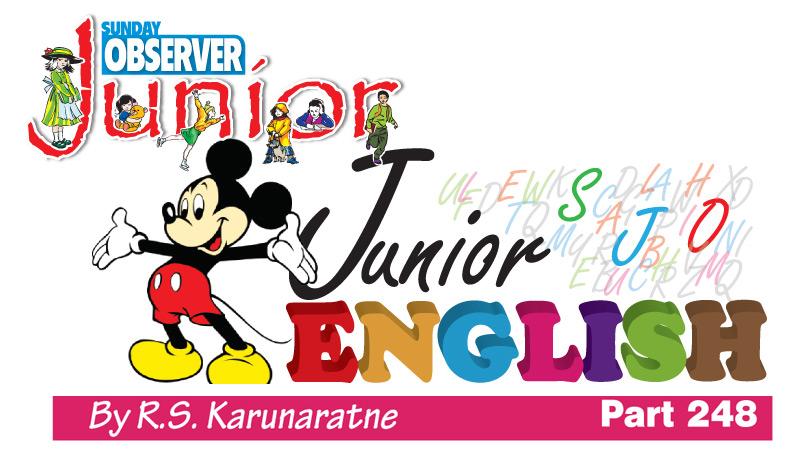
This is a guide to help learners to communicate easily in both speech and writing through a better understanding of the English language.
Ought
‘Ought’ is the past tense of an old verb ‘to owe’ and it cannot be used with an auxiliary verb. It must be followed by an infinitive.
‘Ought to’ is used to say that someone should do something because it is the best or most sensible thing to do.
You really ought to quit smoking.
‘Ought to’ is also used to make a suggestion about something you think is a good idea, especially in a social situation.
We ought to get together sometime soon.
‘Ought’ is stronger than ‘should’ expressing more of a general moral judgment whereas ‘should’ is simply a pious hope.
-our / -or
Words with an ‘-our’ ending such as ‘humour, valour’ and ‘vapour’ lose the ‘u’ if their adjectives end in ‘-ous.’
Humour: humorous
Valour: valorous
Vapour: vaporous
However, the ‘u’ is retained for adjectives ending in ‘-able’ such as ‘honourable’ or ‘favourable.’
In American English such words are spelt without a ‘u.’
Honor, color, favor, humor, valor, vapor
Outdoor / outdoors
‘Outdoor’ is an adjective used only before a noun. It means ‘existing, happening or used outside a building.’
Some people love outdoor recreational activities.
‘Outdoors’ is an adverb meaning ‘outside’ or ‘not in a building.’
Children love to play outdoors.
Let’s eat outdoors.
‘The great outdoors’ means ‘the countryside far away from buildings and cities.’
Anusha has a taste for adventure in the great outdoors.
Some people like to use ‘out of doors’ instead of ‘outdoors.’
Outstanding / outstandingly
‘Outstanding’ is an adjective meaning ‘extremely good.’
This is an outstanding example of a 12th century castle.
‘Outstanding’ also means ‘not yet done, solved or paid.’
Brenda has got a few debts still outstanding.
‘Outstandingly’ is an adverb meaning ‘extremely well.’
Dhananjaya played outstandingly during the recent match.
Outward / outwards / outwardly
‘Outward’ is an adjective meaning ‘relating to how a person or situation seems to be, rather than how it really is.’
The outward appearance of the building is quite impressive.
Don’t judge people by their outward appearance.
‘Outwards’ is an adverb meaning ‘towards the outside or away from the centre of something.’
This door opens outwards.
‘Outwardly’ is an adverb meaning ‘according to the way people seem.’
Jack remained outwardly calm, but inside he was very angry.
Overall
The word ‘overall’ is an adjective only used before a noun. It means ‘considering or including everything.’
I do not want all the details now, just the overall picture.
As an adverb, ‘overall’ means ‘considering or including everything.’
What will it cost overall?
‘Overall’ also means ‘a loose fitting piece of clothing like a coat that is worn over clothes to protect them.’
Overflow / overfly
If a river, lake or container overflows, it is so full that the liquid or water overflows over its edges.
Flood water overflows down the road.
‘Overflow’ also means ‘to have a lot of something.’
Bob is overflowing with brilliant ideas.
As a noun ‘overflow’ means ‘the amount of something or the number of people that cannot be contained in a place because it is already full.’
The overflow of tourists will be accommodated in another hotel.
‘Overfly’ means ‘to fly over an area or country in an aircraft.’
The past tense and past participle of ‘overflow’ are ‘overflowed.’
The past tense and past participle of ‘overfly’ are ‘overflew’ and ‘overflown.’
Overhead
‘Overhead’ means ‘above your head, usually in the sky.’
This road needs overhead lighting.
‘Overhead’ also means ‘relating to the overheads of a business.’
We have to cut overhead costs to increase profit.
An overhead projector is a device which makes large images from a flat transparent sheet and shows them on a white screen or wall.
